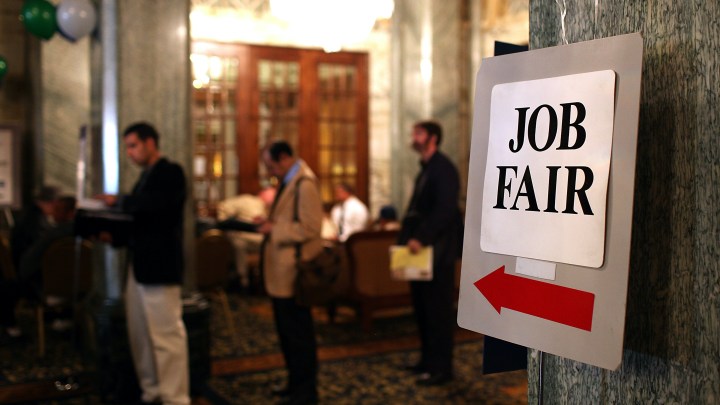
Reevaluating your career? You’re not alone

Up until the last year, Allison Lee had spent most of her career in digital advertising job hopping and city hopping, from Chicago to Minneapolis to Denver. She was always on the move, looking for the next leg of her career and her life.
But when the pandemic hit and life slowed down, she was forced to confront this nagging feeling she’s had for a long time — that she’s been wasting her time.
“I just found myself really unhappy, and I realized I couldn’t do it any longer. That whole 9 to 5 and glued to my chair every day. I knew I needed a change,” Lee said.

She quit her job, put her stuff into storage and took a yacht safety course where she learned how to put out a fire at sea and save someone from drowning. She moved into a crew house in Fort Lauderdale, Florida, where industry workers stay between gigs, and eventually found a job as a stewardess on a 200-foot yacht.
The work isn’t glamorous. The cleaning is so detailed she has to use Q-tips. And she makes $3,000 a month, much less than she used to. But Lee hopes this job will eventually allow her to see the world.
“It was a life goal of mine to hit 30 countries before turning 30,” she said. “But then the pandemic hit. So now’s the time. Not getting any younger. And I did it.”
The pandemic has given people a lot of time to think about what they do for a living, and that’s pushed some to change their careers. According to Prudential’s Pulse of the American Worker Survey, 1 in 5 workers changed their line of work entirely over the last year. Some of that is because of layoffs. But many of the workers surveyed say their career changes were driven by finding better work-life balance or just wanting to try something new.
“It shakes people up. It makes them really think about how they’re spending their time, who they’re spending it with, what they’re spending it doing,” said Amy Wrzesniewski, who researches the meaning of work at Yale School of Management. Office workers are facing boredom, health care workers are facing burnout, and all of us are facing mortality. And these challenges can make people reevaluate our values and identities, and push us to take chances.
Plus, since a lot of people aren’t getting dressed up or lunching with co-workers anymore, they’re just left with the work itself.
“What seemed tolerable before may not seem tolerable anymore. It may seem very different,” Wrzesniewski said.
Some people may even discover a sort of calling. For instance, after 9/11, interest in joining the military increased by 8%. Wrzesniewski said people also experience this after the death of a loved one.
That’s what happened to Karina Totah. She spent more than a decade watching her father suffer from progressive supranuclear palsy or PSP, a rare brain disorder.
“To see him lose the ability to walk, to talk, to swallow, I think I really began to question what is living,” Totah said. “And I found that that question was really complicated by those who were not sick and who were still living.”
Totah’s family disagreed about how to handle her father’s end-of-life care. It wasn’t until years later that she learned about death doulas, who help support patients and their families. In 2018, she left her job leading strategy for New York City public housing to become a death doula.
“I remember writing the goodbye email to my colleagues and I barely mentioned the sort of end-of-life thing because I knew it would freak people out,” she said.
It did, though most people were ultimately supportive, even when she struggled to break into the industry. The job has also taken a toll on her mental health. But she said it’s important for her to do work that gives her purpose.
And studies back this up, that people who find meaning in their work are happier. Of course, changing careers requires risk that isn’t financially feasible for everyone. Kat Koh, a career coach in San Francisco, tells clients to identify what they like or excel at and try to make it a bigger piece of their work or explore a passion project.
And if you’re still feeling restless, “it’s important not to take those emotions and experience and maybe pin it all on your job,” she said.
Our worlds won’t only be work and home forever. As more of the country opens up, the life piece of work-life balance will come back.
There’s a lot happening in the world. Through it all, Marketplace is here for you.
You rely on Marketplace to break down the world’s events and tell you how it affects you in a fact-based, approachable way. We rely on your financial support to keep making that possible.
Your donation today powers the independent journalism that you rely on. For just $5/month, you can help sustain Marketplace so we can keep reporting on the things that matter to you.


















